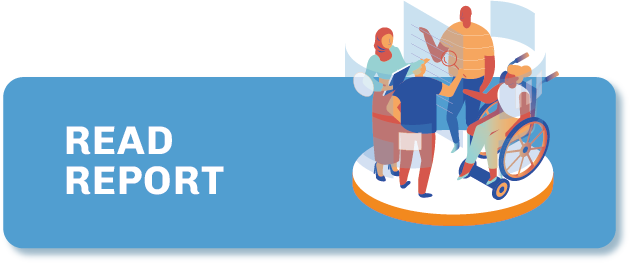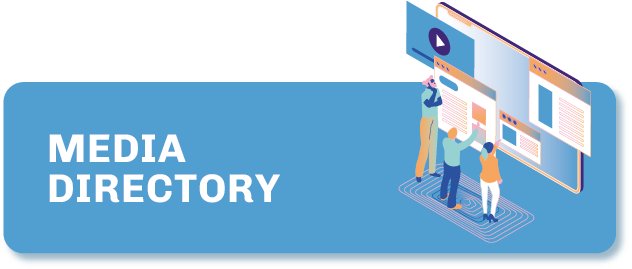Belgium
Media fragmentation due to linguistic pluralism in Belgium does not allow for the formation of a broad national digital native media sector, whereas a lack of funds for this media category decreases the possibility of starting new media initiatives.
Media organisations
in the Directory
TYPE OF COVERAGE

TYPE OF ORGANISATION

GENDER OF FOUNDERS

Press freedom
The right to freedom of expression is a fundamental right, guaranteed by the Belgian constitution. In March 2021, the country’s Sapin II law, for transparency and the fight against corruption, was amended in order to transpose the European Union directive for the protection of whistleblowers. However, there has been a worrying increase in insecurity for journalists, online and offline, as well as a rise in SLAPPs (strategic lawsuits against public participation) in the country, according to the European Commission’s 2022 Rule of Law Report. Belgian journalists suffer online and offline violence, where two out of three victims of cyberbullying are usually women, according to the country’s Association des Journalistes Professionnels. No real-time abuse towards journalists was reported this year in the country.
Market structure and dominance
Belgium, made up of French-speaking Wallonia and Dutch-speaking Flanders, has two very distinct and small media markets which, due to language barriers, hardly compete with each other. As there is no unified marketplace, media organisations in both parts have no shared interest in media ventures, for the most part. Two ventures worth mentioning are Mediafin – a joint venture between French-speaking Groupe Rossel and Dutch-speaking Roularta Media Group, and RTL – a joint venture between Groupe Rossel and Dutch-speaking DPG media. However, the Belgian state administers the major regional radio and television stations RTBF and VRT through their councils, on which sit representatives of the four main political movements – Socialist, Liberal, Christian and Green.
The lack of media-specific cross-ownership regulation has resulted in high levels of media concentration, as noted in the Centre for Media Pluralism and Media Freedom’s Monitoring Media Pluralism in the Digital Era (MPM 2022) report. When it comes to news and print, in Flanders, the market is divided between Mediahuis and DPG Media. The former owns popular newspaper Het Nieuwsblad and investigative newspaper De Standaard, whereas Flemish newspaper market leader Het Laatste Nieuws, along with quality newspaper De Morgen is owned by the latter. In Wallonia, the press is controlled by Groupe Rossel, the owner of business newspaper Le Soir and the popular Sudpresse.
How media is funded
A shift towards digital has primarily affected the daily print media sector, whose share of advertising revenue has decreased consistently. While subscription or hybrid revenue models are adopted by some outlets, and subscription rates increased in the last few years, this cannot be transposed to all media organisations, as this would generate high financial pressure on consumers. Public direct and indirect subsidies are substantial, and financing is arranged via multi-annual protocols signed with the national and regional government. “Media companies also benefit from a range of complementary measures such as reduced rates for distribution and innovation incentives,” notes the Media Landscapes analysis. No specific fund exists for native digital media outlets. Funds are available for all kinds of media publications, which makes the competition high. Besides, if the media outlet is small, the amount of funding will also be small.In late 2018, the Association of Belgian Independent Pure Players (ABiPP) was formed by French-speaking journalists in order to promote the creation of an ecosystem of digital independent journalistic media outlets, while campaigning for public and structural aid.
Ten profiles of digital native media organisations from Belgium are included in the directory. This includes seven profiles based on interviews and three profiles based on desk research.
Most of the outlets hold non-profit status, relying on state or regional funds dedicated to media organisations as main revenue sources. As regional funds can only be accessed if the media outlet complies with language requirements, linguistic fragmentation is also reflected in the digital native online media landscape. Multilingualism for a platform is difficult to develop, as non-profit organisations cannot allocate funds towards translating content.
Almost all media outlets refuse advertising, partly because of their non-profit status, but mainly to keep their independence and to reflect their beliefs. Some of the media outlets, specifically the Flemish ones (such as Pala and De Wereld Morgen) stem from anti-globalisation and anti-capitalist movements. This makes them rely on limited state funding which they have to apply for, and are not granted to receive, hence they might not be able to increase their coverage or staff. Some media outlets use their core communities, such as pools of citizen journalists or experts freelancing pro-bono, to help them translate or create content.
The Flemish-speaking StampMedia, an organisation which aims to support and train young adults and adolescents by increasing their media literacy and reporting skills, collaborates with traditional Flemish media outlets to publish on their platforms. This type of dissemination allows their content to reach over two million people with each piece they publish. To increase their reach, five digital native media outlets in the French-speaking region have started a new platform together, called Tribu Médias, where content coming from all five media outlets is aggregated.Few media outlets look for viable alternative business models. If they do, subscription models are prioritised. The French-speaking media outlet Regional-IT, for example, relies on yearly, monthly or “pay as you consume” subscriptions, where paywalled articles can be unlocked singularly by spending €1 each.
The Dutch-speaking investigative media outlet Apache has a core group of over 3,000 yearly subscribers, allowing them to diversify their product offer, which includes an online website, newsletter, a quarterly magazine, events and a podcast. No digital native media outlet was found among the German-speaking minority, which numbers around 77,000 people. However, due to the presence of the Congolese diaspora and the African community, the Bel’Africa webTV organisation focuses on this minority in the country and its European-African relations. It is experimenting with launching its own application.
Most digital native media outlets in Belgium are small and are likely to remain small. Their difficulties in scaling and in gathering larger audiences stem from the low chance of them receiving funds, as well as linguistic barriers. The ABiPP is set to release a series of recommendations demanding state aid destined to help digital media organisations thrive; a positive outcome to its request could bring favourable conditions for the digital media ecosystem.
Last updated: January 2023
CREDIT FOR STATISTICS: Press Freedom statistics, RSF Press Freedom Index 2022; Internet penetration and population statistics, from Internet World Stats

